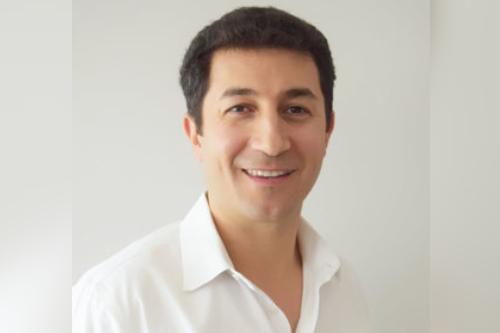Leader’s view is that an element of the industry’s culture, is keeping originators from an achievable $1 million paycheck

While mortgage professionals might have won big on volume and profits this past year, they also probably felt a fair bit of frustration. Overwork and burnout became serious factors in this high-volume period, as did issues of underwriter shortages and loan turn time delays. 2020 might have been the best year on record for many, but it also unveiled the pain points of the mortgage process for all to see. Originators are looking at the 80-hour weeks they’ve worked in the past year asking if it was worth it and what might be holding them back. One mortgage president thinks that as originators ask what kept them from doing more and making more last year, they need to look in the mirror.
Bishoi Nageh, president of Petra Cephas Residential Mortgage Brokers, explained how the culture many originators were brought up in can hold them back. In his experience, most originators are too controlling of a loan once it’s been sent to processing. A culture of ‘only I talk to the client’, that prevents processing teams from reaching out for vital information, places an undue burden on an originator’s time and creates bottlenecks for processors as all their requests have to flow through one busy originator, not to mention the burden it places on an originator’s work-life balance. Nageh’s solution is a simple one: originators need to trust their processing teams so they can spend more time doing their actual jobs, originating loans. If they can do that, Nageh believes originators can make millions.
“You grow by producing more, and if you get 200 referral partners to send you two clients a year, and you’re based on 75 to 100 basis points, you’re making a million dollars a year,” Nageh said. “People in this industry think it’s unfathomable…but it’s very fathomable, it just depends on the company.”
Nageh explained that his model is to create meaningful trust between originators and processors by training processors on how to be flexible and client facing when they need to be and putting originators in a culture where they know their success is connected to the success of the whole team. Nageh likened the processing team to the assistants, nurses, and tools a surgeon uses to extract a tumor. Without trust in those tools, neither the surgeon nor the originator could do their jobs.
Convincing new originators to trust their processing team, however, is no easy task, especially if they were brought up in ‘do it all yourself’ cultures. As such, Nageh’s first rule is to get the originators to believe in themselves and believe they can hit those lofty seven-figure targets. He emphasizes setting new benchmarks, too, based around the number of relationships built rather than loans closed, to prevent a kind of churning in an originator’s client base that might keep them comfortable but won’t push them to grow further. He then shows how they can achieve, by trusting their processing team to ensure that they’re spending as little time as possible on process issues and as much time as possible finding new partners.
Read more: Existing home sales continue upward march
Nageh emphasized that originators’ sometimes counterproductive desire to control the client relationship isn’t due to their own failings. He explained that many of the companies and systems they come up through aren’t training them to know their own lane and trust in others. Achieving that level of trust takes a serious investment in the processing team.
While Nageh said his originators have well-defined job roles, he explained that his processors are trained to go beyond their job description. They are trained in customer service and client facing skills for when they need to make requests and they’re hired with a mind to growth in their career. He’s not hiring people to be paper pushers, he wants processors who see themselves as vital parts of the team, with room to grow and achieve. Nageh explained that by hiring the best, and even overpaying for top processing talent, he can vastly increase the company’s overall volume.
His approach is based on a relatively simple calculus for originators and mortgage firms - there is only so much time in a day and one person only has so much energy. In a zero-sum situation, he believes taking some of the burden off the originator and shifting it on to a well-designed processing team will, in the end, benefit everyone.
“If you tell yourself that you want to control everything and you want to grow, you’re going to run into physics,” Nageh said. “It’s a zero-sum situation. There’s no way to call realtors, follow-up on deals, maintain your current referral partners and increase your business all at once. The laws of physics don’t allow that.”



